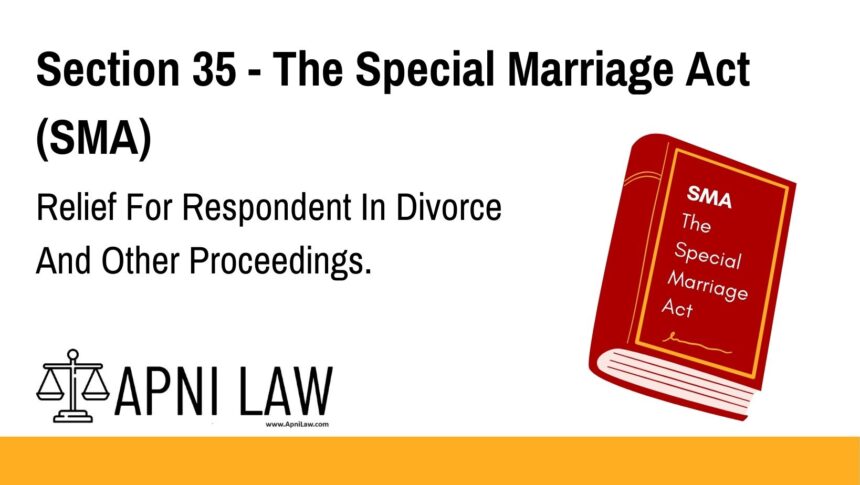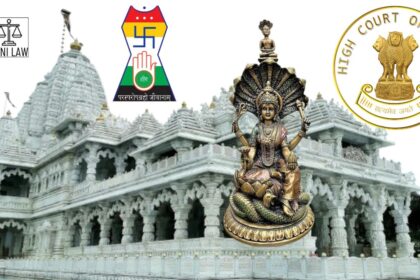Code: Section 35 – Relief for Respondent in Divorce and Other Proceedings
In any proceeding for divorce or judicial separation or restitution of conjugal rights, the respondent may not only oppose the relief sought on the ground of petitioner’s adultery, cruelty or desertion, but also make a counter-claim for any relief under this Act on that ground, and if the petitioner’s adultery, cruelty or desertion is proved, the court may give to the respondent any relief under this Act to which he or she would have been entitled if he or she had presented a petition seeking such relief on that ground.
—
Explanation of Section 35 – Special Marriage Act
Section 35 of the Special Marriage Act empowers the respondent (i.e., the person against whom a petition is filed) in matrimonial proceedings to not only defend the case but also seek relief themselves.
This provision recognizes that a respondent in a divorce, judicial separation, or restitution of conjugal rights case may have legitimate grievances such as the petitioner’s own misconduct (e.g., adultery, cruelty, or desertion). It enables the respondent to counter-claim and receive any appropriate relief available under the Act.
Key Provisions:
- Applies to proceedings for:
- Divorce
- Judicial separation
- Restitution of conjugal rights
- If the respondent proves that the petitioner:
- Committed adultery
- Treated the respondent with cruelty
- Deserted the respondent
- Oppose the relief sought by the petitioner
- File a counter-claim seeking any relief available under the Act
- The court can grant relief to the respondent as if they themselves had filed the original petition.
—
Illustration
Example 1: Respondent Opposes Divorce Based on Petitioner’s Cruelty
A wife files for restitution of conjugal rights. The husband responds by alleging and proving that the wife had been cruel to him. Under Section 35, the husband can not only oppose her petition but also request a divorce based on cruelty—even though he did not file the original petition.
Example 2: Divorce Counter-Claim Due to Adultery
A husband files for divorce alleging desertion. The wife proves in court that the husband committed adultery. Under Section 35, she may counter-claim and be granted a divorce on the basis of adultery.
—
Common Questions and Answers on Section 35 SMA
Q1. Can a respondent in a divorce case also get a divorce?
Yes. If the respondent proves that the petitioner is guilty of adultery, cruelty, or desertion, the court can grant the respondent a divorce even if they didn’t file the original petition.
Q2. Does the respondent have to file a new petition?
No. Section 35 allows the respondent to file a counter-claim in the same proceeding instead of initiating a separate petition.
Q3. What is the benefit of a counter-claim under Section 35?
It allows both parties to present their grievances and seek relief in the same proceeding, saving time, costs, and procedural complexities.
Q4. Can this provision be used in restitution of conjugal rights cases?
Yes. Even in a restitution case, the respondent can counter-claim for divorce or judicial separation if grounds exist.
—
Conclusion
Section 35 of the Special Marriage Act provides procedural fairness by ensuring that both the petitioner and respondent have equal rights to seek relief in matrimonial disputes. It allows the respondent to assert their own claims and receive justice without needing to file a separate petition.
To explore more actionable insights into family law and matrimonial procedures, visit ApniLaw.








